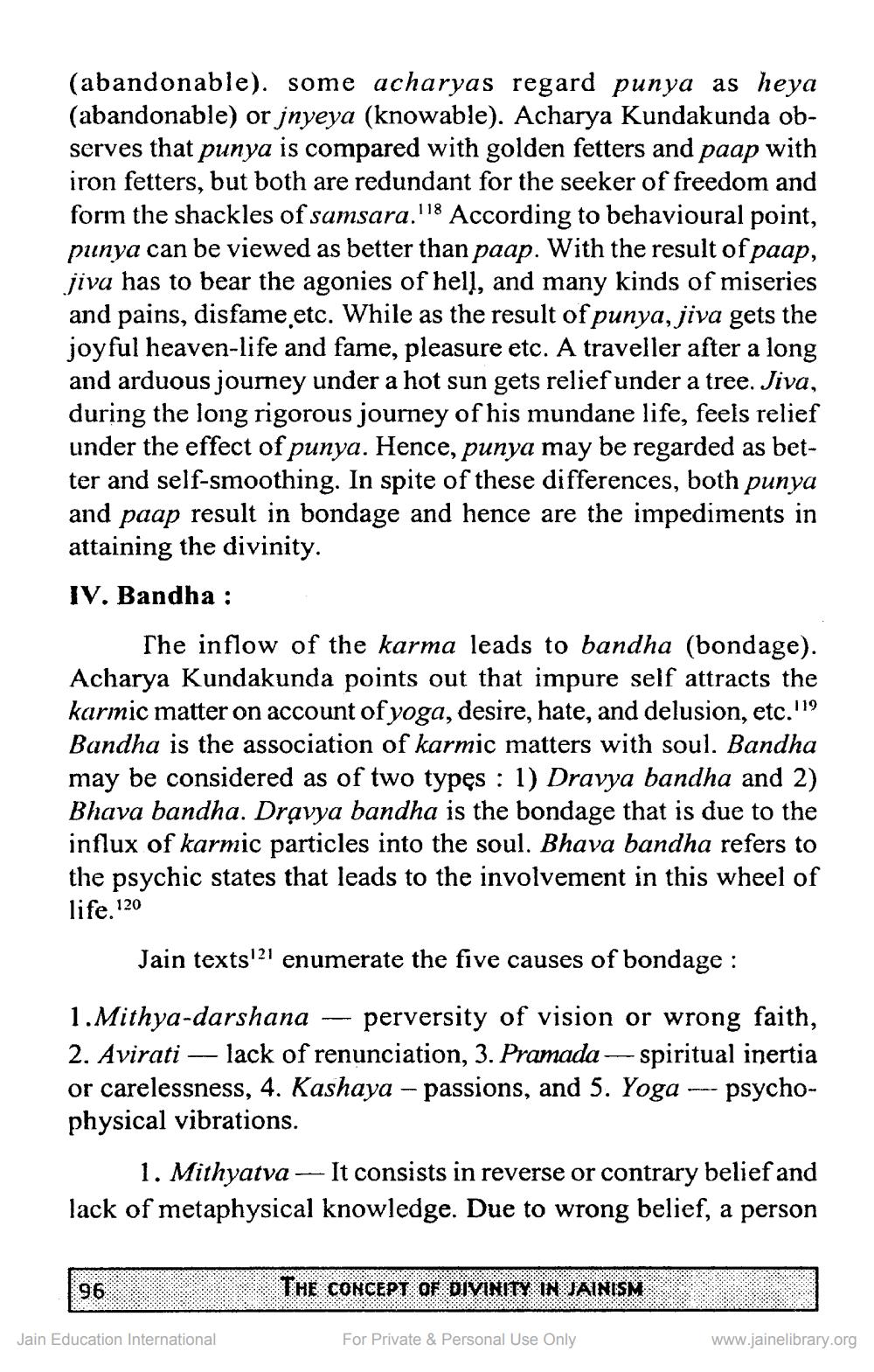________________
(abandonable). some acharyas regard punya as heya (abandonable) or jnyeya (knowable). Acharya Kundakunda observes that punya is compared with golden fetters and paap with iron fetters, but both are redundant for the seeker of freedom and form the shackles of samsara.118 According to behavioural point, punya can be viewed as better than paap. With the result of paap, jiva has to bear the agonies of hell, and many kinds of miseries and pains, disfame etc. While as the result of punya, jiva gets the joyful heaven-life and fame, pleasure etc. A traveller after a long and arduous journey under a hot sun gets relief under a tree. Jiva, during the long rigorous journey of his mundane life, feels relief under the effect of punya. Hence, punya may be regarded as better and self-smoothing. In spite of these differences, both punya and paap result in bondage and hence are the impediments in attaining the divinity. IV. Bandha :
The inflow of the karma leads to bandha (bondage). Acharya Kundakunda points out that impure self attracts the karmic matter on account of yoga, desire, hate, and delusion, etc. 119 Bandha is the association of karmic matters with soul. Bandha may be considered as of two types : 1) Dravya bandha and 2) Bhava bandha. Dravya bandha is the bondage that is due to the influx of karmic particles into the soul. Bhava bandha refers to the psychic states that leads to the involvement in this wheel of life. 120
Jain texts!21 enumerate the five causes of bondage :
1.Mithya-darshana – perversity of vision or wrong faith, 2. Avirati — lack of renunciation, 3. Pramada — spiritual inertia or carelessness, 4. Kashaya - passions, and 5. Yoga ---- psychophysical vibrations.
1. Mithyatva - It consists in reverse or contrary belief and lack of metaphysical knowledge. Due to wrong belief, a person
96
T
HE CONCEPT OF DIVINITY IN JAINISM
Jain Education International
For Private & Personal Use Only
www.jainelibrary.org




